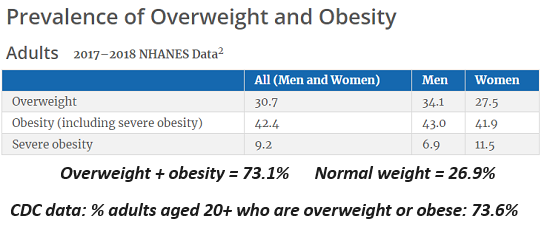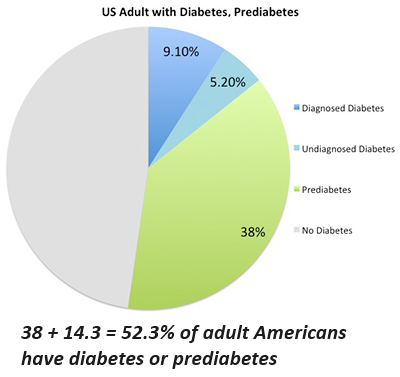Here's the real problem: there's no profit in a raw carrot and a walk around the block.
Here's our mythology in a nutshell: human needs are limited but human desires are unlimited, and the economy is fueled by smart people motivated by profit to fulfill our desires. Since desires and human ingenuity are both unlimited, the economy is unlimited.
This story is heartwarming but it's a fairy tale because it leaves out marketing and monopoly: marketing shapes desire to fit what's being sold, not the other way around, and monopoly eliminates choices that don't generate enormous profits for those who own the monopoly.
It isn't surprising that our economy is dominated by marketing and monopoly, because these are what generate the really big profits. The fairy tale features the canny innovator producing a better mousetrap but the real profits are made by eliminating competing mousetraps and forcing consumers to buy products and services that are highly profitable without being highly beneficial.
Which brings us to this question: does the "solution" actually solve the problem, or does it just make somebody a lot of money? Since the most important component of "wealth, abundance and prosperity" is our health, let's focus on health.
It's self-evident that being overweight/obese is a systemic risk to our overall health. It's also self-evident that this risk factor was relatively rare in the early 1960s and is now prevalent, with
recent studies finding only 22% of the US adult populace normal or underweight and about 70% are obese.
Traditional calculations find about 75% of the adult populace is overweight/obese and 25% are normal weight.

Over half the adult populace is either prediabetic or diabetic.

The solution being offered is expensive, highly profitable weight-loss drugs which have many side-effects. But is this really the best solution, or is it a "solution" to the "problem" of how to generate higher profits?
Isn't the obvious line of inquiry here to ask why we were healthier 60 years ago and seek to replicate those conditions? In other words, isn't the obvious solution to go back to what worked without costly, risky interventions?
By all accounts, we were more active and ate mostly real food 60 years ago. We were more active in everyday life; nobody was getting up at 5 am to go to the gym except a handful of professional body-builders or athletes.
Today, our collective diet is dominated by highly processed foods, sugary beverages, unhealthy snacks and fast food, all of which meet two criteria: 1. they are inherently unhealthy and 2) they are highly profitable.
In summary: "solutions" are no longer about actually solving problems: "solutions" are about defining the "problem" so that a highly profitable fake solution can be marketed by a cartel or monopoly.
Here's the real problem: there's no profit in a raw carrot and a walk around the block. "Solutions" must be profitable or they're not "solutions." That these fake "solutions" generate new unsolvable problems--well, you can't stop "Progress."
My new book Investing In Revolution is available at a 10% discount ($18 for the paperback, $24 for the hardcover and $8.95 for the ebook edition) through November.
Introduction (free)
Check out my updated Books and Films.
Become
a $3/month patron of my work via patreon.com
Subscribe to my Substack for free
NOTE: Contributions/subscriptions are acknowledged in the order received. Your name and email
remain confidential and will not be given to any other individual, company or agency.
|
Thank you, Dennis P. ($70), for your magnificently generous subscription
to this site -- I am greatly honored by your support and readership.
|
|
Thank you, David E. ($7/month), for your marvelously generous subscription
to this site -- I am greatly honored by your support and readership.
|
|
Thank you, D.G. ($7/month), for your superbly generous subscription
to this site -- I am greatly honored by your support and readership.
|
|
Thank you, Francis ($7/month), for your splendidly generous subscription
to this site -- I am greatly honored by your support and readership.
|





























